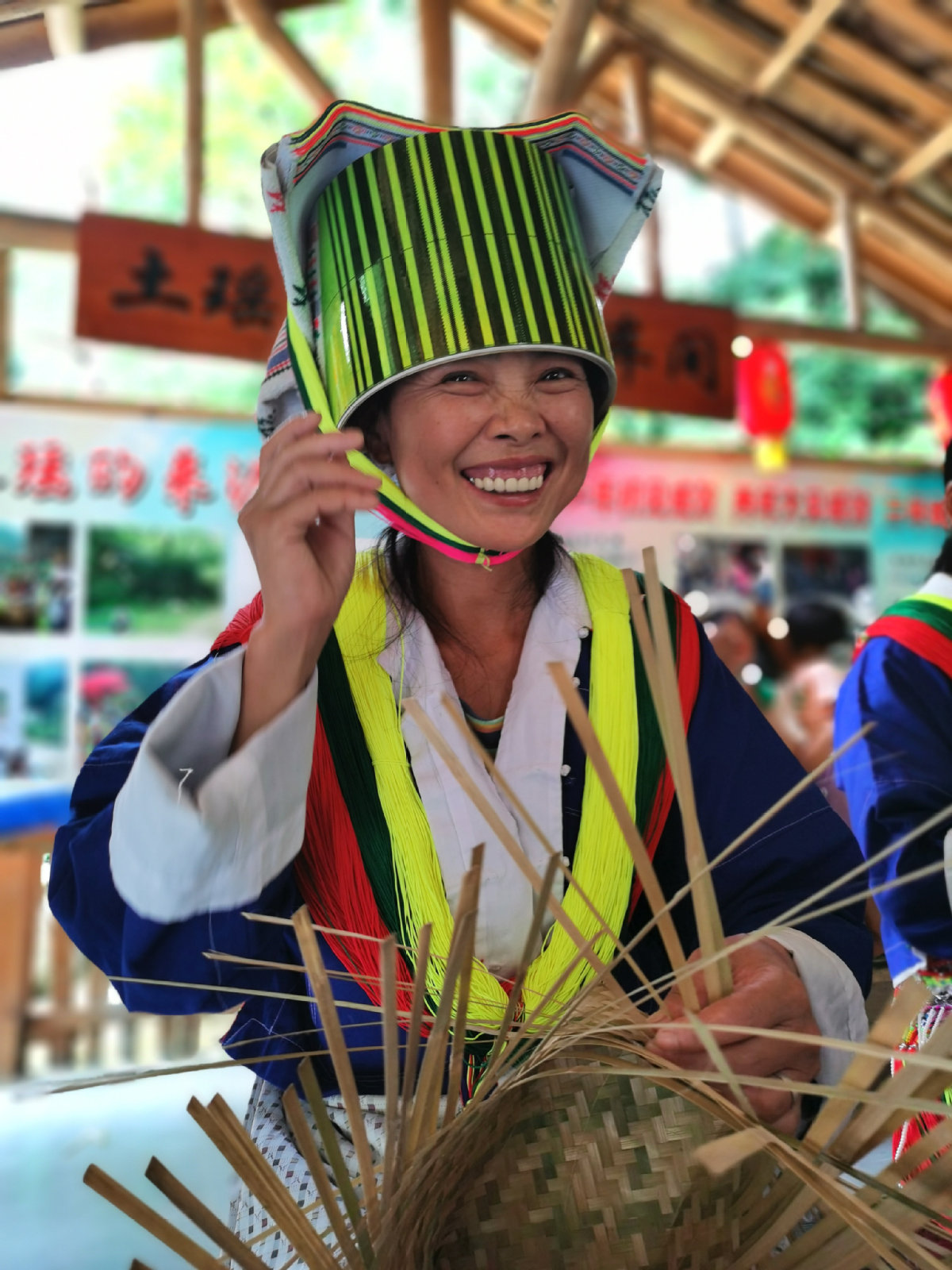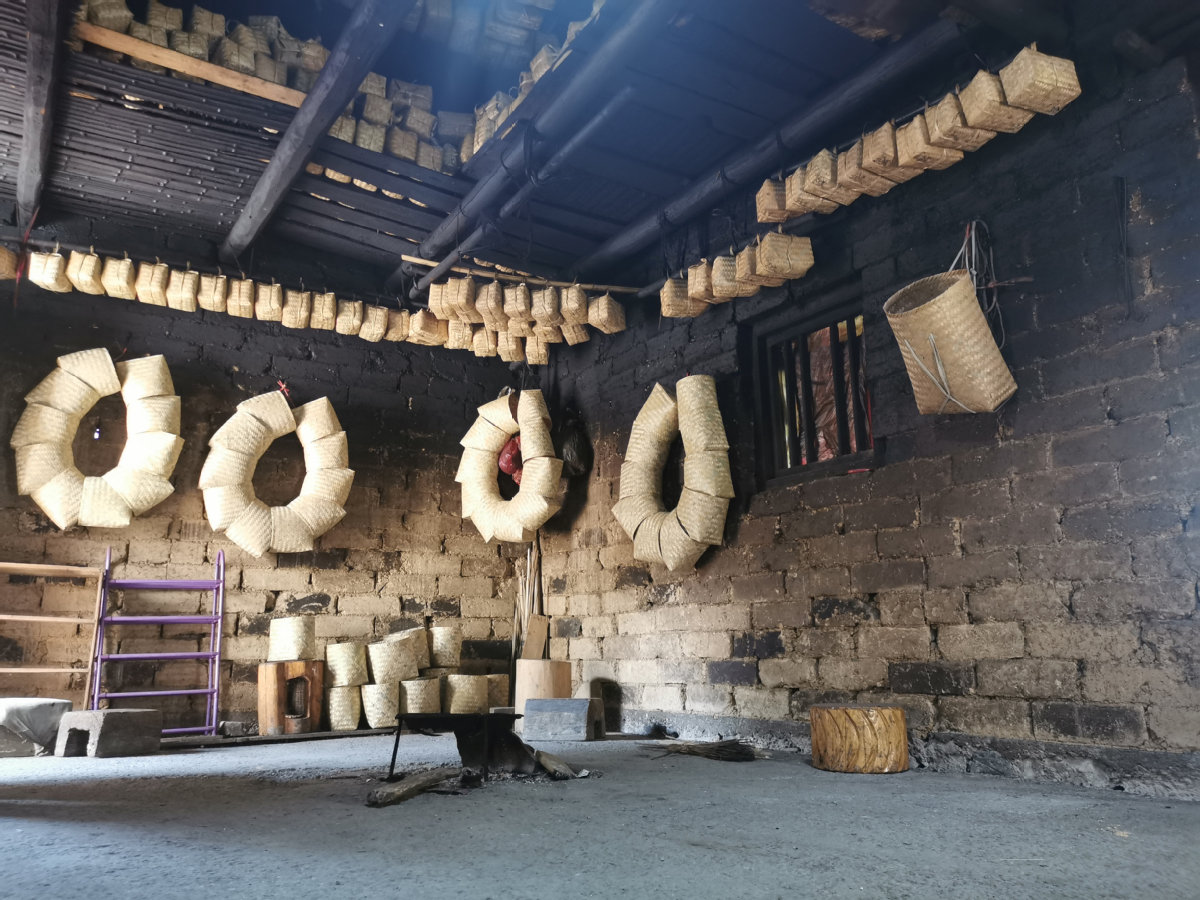 |
|
Pan Qinglan [Photo by Shi Ruipeng/China Daily] |
Knitting a brighter future
Resources in Dachong are abundant, and the only thing needed is perhaps a keen eye. As bamboo can be found all over the mountains, Zhou and villagers have concocted another way to boost the value of their product-to make a pretty, handmade package in which the dark tea can be sold at a higher price. Getting rid of the old gunny bags, they make knitted bamboo baskets to hold the tea leaves.
In 2018, Pan Qinglan, Feng Qiugu, and more than 100 women in the village, were offered the opportunity to knit the baskets. Each product nets its knitter 9 yuan.
"When I was a kid, I saw my grandma and mother knit baskets, and I also knitted some for daily use, like every family here did," Pan Qinglan says. "But nobody ever thought this craft could also make money."
Pan Qinglan regrets that she is not very skillful, but the workshop also offers training programs to hone their basket-making technique, particularly those suited to tea fermentation. The best craftswomen can fashion over 20 baskets a day.
"I can only make 10, but it's OK," Pan Qinglan says. "It doesn't interfere with my farm work. I can do it whenever I have time, like people in cities sometimes also knit sweaters."
She earned over 6,000 yuan in 2018 alone from basket-making, and the villagers in Dachong can collectively earn around 600,000 yuan annually from the baskets.
Nowadays, there are also a greater number of vehicles arriving in the village to order local produce. Pan Qinglan and Feng Qiubao's ginger has become popular, and they also operate a fishpond. Pan Manbao has started keeping bees, from which he earned 6,000 yuan last year.
"My wife makes extra money by knitting," Pan Manbao says. "I cannot lag behind. I have to start my own business."
The recent statistics show that the average income per capita in Dachong reached 9,500 yuan in 2019, tripling in five years. But Zhao, the Party chief, plans to introduce new businesses to make villagers richer.
"We see tourists drive to the village every day, from nearby cities and from (nearby) Guangdong province," he says. "Tourism can be the next booming industry if we keep improving the infrastructure."
 |
|
Traditional residential houses in Dachong offer perfect venues to ferment black tea. [Photo by Wang Kaihao/China Daily] |
Wooden boardwalks and an observation deck have recently been built in the village to act as tourist tracks for future visitors, while some villagers, like Feng Qiubao, plan to turn their houses into homestay inns.
And he has other plans. The couple have never traveled outside Guangxi. Their daughter, who is graduating from college, abandoned her job as a civil servant with the local government and chose to work in Guangdong with the reasoning that "the world is big, and I'd like to see it".
An open-minded Feng Qiubao respects his daughter's decision. He also knows it is necessary to catch up with the fast-changing world, even though they live deep in the mountains. Broadband internet network facilities will be introduced into the village later this year.
"When we got married and first heard people talk about 'tourism' some years ago, I didn't even know what the word meant," he says. "But life is getting better now. Seeing tourists come here, we'd like to be tourists to travel to faraway places as well. If we can buy a car, that will be even better."